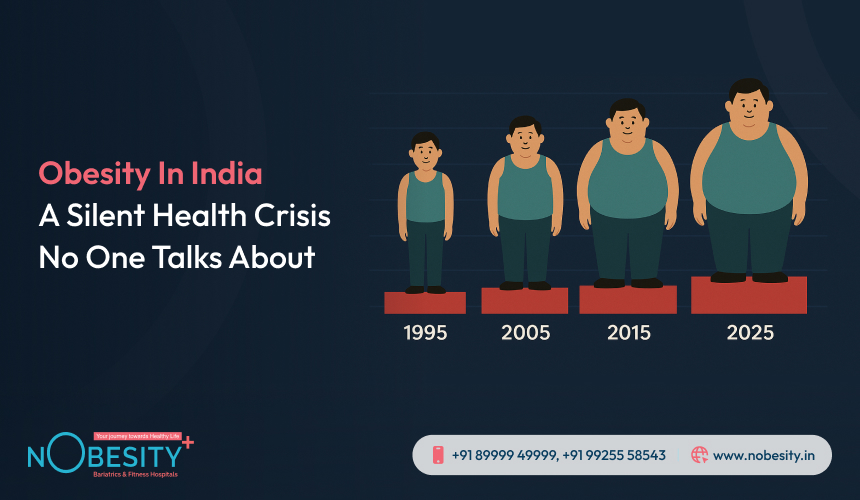
Obesity is recognised as a chronic health condition that affects not only an individual’s appearance but also poses significant risks to overall well-being, including heart disease, diabetes, and joint problems. As its prevalence continues to rise, the need for effective weight loss treatments becomes increasingly urgent.
Treatment options for obesity have evolved. While diet and exercise remain foundational, advanced solutions like medical treatments and medications are gaining more attention. These options can be essential in achieving long-term weight management when combined with lifestyle changes.
This blog will explore how weight loss medications can be part of the broader approach to weight loss treatment, offering valuable support alongside lifestyle changes. We aim to provide information on how weight loss medications may aid individuals in their pursuit of better health.
Treatment Landscape for Obesity
The treatment landscape for obesity is diverse, combining traditional methods with innovative solutions to help individuals achieve long-term weight management. Our team recognizes that a comprehensive approach, which includes lifestyle interventions, medical options, and, in some cases, surgical options, can be beneficial in addressing obesity. While we focus on holistic approaches, we provide information on various treatments, ensuring that individuals clearly understand their options for effective weight management.
Lifestyle Interventions: Diet, Exercise & Habits
Lifestyle changes form the foundation of obesity treatment, focusing on balanced diets, regular exercise, and healthy habits. These changes are not just about losing weight—they’re about transforming your life and improving your overall health. While quick fixes like crash diets or extreme weight-loss measures might show immediate results, they often lead to regaining the weight and feeling defeated.
What truly works, and what will make a difference for you, is committing to lifelong healthy habits. This isn’t just about weight loss—it’s about embracing a sustainable, healthier lifestyle that will keep you feeling good, strong, and confident for the rest of your life. When you choose lasting change, you’re choosing a future of better health, happiness, and a weight you can maintain.
Surgical Procedures: When Are They Recommended?
Weight loss surgery, such as bariatric procedures, is often recommended for individuals who have not achieved sufficient weight loss through other methods like diet, exercise, or medication. These procedures can be life-changing, particularly for those with severe obesity or related health complications.
Typically, bariatric surgery is considered for individuals who meet the following criteria:
- BMI of 40 or higher
- BMI of 35 or higher with obesity-related health conditions (e.g., diabetes, hypertension, sleep apnea)
Along with meeting the BMI criteria, surgery is also recommended for individuals who have failed to lose weight through multiple attempts using lifestyle changes, including diet and exercise. This ensures that surgery is a viable, long-term solution for managing obesity and improving overall health.
Where Medication Comes In
Medication plays a supportive role in obesity treatment, helping individuals manage their weight alongside lifestyle changes. It is recommended when lifestyle interventions alone have proven insufficient, and it may serve as a complementary tool in the journey towards better health.
When Is Medication Recommended for Weight Loss?
Medication is typically considered when lifestyle changes alone are insufficient for achieving significant, sustained weight loss, especially if obesity poses serious health risks or complications. Our expertise emphasizes the importance of a comprehensive approach to weight management, where lifestyle changes remain central, and other options are explored based on individual health needs and circumstances.
Clinical Guidelines and Eligibility
Clinical guidelines for obesity treatment suggest that medication may be considered for individuals with a Body Mass Index (BMI) of 30 or higher, or for those with a BMI of 27 or higher who also suffer from obesity-related health conditions like diabetes, hypertension, or sleep apnea. Medication is often explored when lifestyle changes, such as diet and exercise, have not resulted in adequate weight loss or when obesity-related health risks become more severe. Combined with other weight loss strategies, these medications can be part of a comprehensive treatment plan supporting long-term health.
Ideal Candidates for Prescription-Based Support
Ideal candidates for prescription-based weight loss medications include individuals who have been unsuccessful in losing weight through lifestyle changes alone, particularly those with a BMI of 30 or above. Additionally, individuals with a BMI of 27 or higher and existing obesity-related conditions like type 2 diabetes, hypertension, or cardiovascular diseases may benefit from medication to support their weight loss journey. Candidates who are at a higher risk for complications due to obesity are also considered suitable for prescription-based treatments. It’s important to note that weight loss medications are not a substitute for lifestyle changes but a supportive tool for achieving and maintaining weight loss goals.
GLP-1 Medications: Exploring Their Role in Weight Loss Treatments
GLP-1 receptor agonists have emerged as a promising solution for weight management, helping individuals achieve meaningful weight loss by targeting the body’s natural mechanisms. Our team recognises these medications as essential to the obesity treatment landscape, mainly when used alongside lifestyle changes for more effective long-term results.
What Are GLP-1 Receptor Agonists?
GLP-1 receptor agonists are a class of medications that mimic the action of a hormone called glucagon-like peptide-1 (GLP-1), which plays a key role in regulating appetite and blood sugar levels. Initially used for managing type 2 diabetes, these medications are now being explored for their benefits in weight management, offering an effective treatment option for those struggling with obesity.
How They Work to Support Weight Management
GLP-1 receptor agonists can support weight management by reducing appetite, promoting feelings of fullness, and slowing gastric emptying. These effects help individuals consume fewer calories and maintain better control over their eating habits. Additionally, these medications can help improve insulin sensitivity, crucial for managing weight and reducing the risk of obesity-related health conditions. Our team recognises that such medications may be part of a broader weight management strategy when combined with lifestyle changes.
A Look at Current Prescription Options
We understand several prescription medications are available for weight loss, each offering unique benefits and considerations. These options are typically explored when other methods, like diet and exercise, have not produced significant results. Team Nobesity is committed to guiding you through these choices, ensuring you have the correct information to make the best health and well-being decisions.
A Look at Current Prescription Options
Prescription weight loss medications are increasingly being used to support individuals struggling with obesity. These medications include a variety of options that work by affecting appetite, metabolism, or the body’s ability to process food. Medications like GLP-1 receptor agonists, phentermine, and others are often part of a broader treatment plan that includes lifestyle changes to help achieve sustainable weight loss.
Overview of Medications Like Ozempic, Mounjaro, & Trulicity
Ozempic, Mounjaro, and Trulicity are among the most widely known medications for weight loss. Developed initially to manage type 2 diabetes, these appetite-suppressing medications have gained popularity for their ability to help with weight loss by curbing hunger and improving insulin sensitivity. While they have proven effective for some individuals, they are not a one-size-fits-all solution and may not be suitable for everyone.
Key Differences, Common Uses & Medical Supervision
While medications like Ozempic, Mounjaro, and Trulicity share similar mechanisms, they vary in dosage, administration methods, and specific medical uses. These medications are typically prescribed under medical supervision, as they may have side effects and require regular monitoring. A healthcare provider will evaluate individual health conditions and needs before prescribing these drugs, ensuring they are used appropriately for weight management.
Weighing the Pros and Cons: What You Need to Know
While weight loss medications can be effective for some, our team at NObesity needs to help you understand the benefits and potential drawbacks. We’ll explore how these treatments work, their risks, and long-term considerations so you can decide about your weight loss journey.
Effectiveness in Clinical Studies
Clinical studies have shown that appetite-suppressing medications can lead to significant weight loss for many individuals, with some studies reporting an average loss of 10-15%. However, results can vary, and we understand these medications may not work the same for everyone. At NObesity, we have a team of experts who ensure each individual receives personalised advice tailored to their needs.
How Much Weight Loss Can You Expect from Medication?
Most people experience a weight reduction of about 5–10% of their body weight over several months. While this may improve blood pressure, blood sugar, and cholesterol levels, the results may not be as substantial for those with more severe obesity. Medication helps, but consistent lifestyle habits remain the foundation for lasting results.
Common Side Effects and Medical Warnings
Like any medication, appetite-suppressing drugs can come with side effects, including nausea, vomiting, and diarrhea. More serious issues like inflammation or thyroid problems may occur in rare cases. It’s essential to be under medical supervision to monitor these risks and ensure the medication is safe.fdv
How Long Should You Stay on Weight Loss Medication?
We’ve seen that most individuals stay on weight loss medication for as long as it’s effective and well-tolerated. But it’s important to understand that once the medication is stopped, weight regain is a common challenge. This often turns into a longer-term commitment than initially expected. Over time, extended use can also increase the chances of side effects, which is why we always advocate for a more balanced and sustainable weight management approach alongside any medication.
What Happens If You Stop Taking It?
When someone stops taking weight loss medication, the body usually returns to its natural appetite rhythms, and weight gain can follow. That’s why we strongly emphasize building healthy habits, nutritional support, and behavior-driven strategies that continue to work, whether medication is part of the journey or not. It’s important to remember that medication is just one piece of the puzzle, not the entire plan.
Cost Comparison: Medication vs. Surgery
On the surface, medications might appear more budget-friendly. But in reality, the long-term costs can add up—monthly prescriptions, doctor visits, lab monitoring, and adjustments often continue indefinitely. And despite all that, the results may not always be as significant or lasting.
We also have to factor in accessibility. Some medications aren’t always easy to find, insurance doesn’t always cover them, and supply issues can disrupt progress.
Conversely, surgery is a one-time investment that many find to be more transformative and enduring. While the initial cost is higher, it often leads to more consistent results and fewer ongoing expenses. Proper post-operative care and support make it a reliable long-term solution for many on their weight loss journey.
Long-Term Use & Dependency Concerns
We understand that relying solely on medication for weight management can sometimes lead to both physical and emotional dependency. Over time, the body may build a tolerance, making the medication less effective, and it can become difficult to maintain progress without it. That’s why we believe medication should always be part of a broader, more holistic plan that includes personalized nutrition, regular physical activity, and behavioral support. In our experience, true long-term success comes from addressing the root causes, not just the symptoms.
Integrating Medication into a Holistic Plan
Medication can be helpful in weight loss, but it works best with a holistic approach. This includes lifestyle changes, like improving diet and exercise, and ongoing medical support to ensure safe and effective weight.
Importance of Lifestyle Changes Alongside Medication
While appetite-suppressing medications can assist with weight loss, they are most effective when paired with healthy lifestyle changes. A balanced diet, regular exercise, and good sleep habits are crucial in maintaining long-term weight loss and overall health. Medication alone is not a long-term solution without these foundational changes.
Role of Medical Monitoring and Support
Medical monitoring is essential when using weight loss medications to ensure their effectiveness and minimise risks. Regular check-ups allow healthcare providers to adjust the treatment as needed, monitor any potential side effects, and support you in making sustainable changes to your lifestyle. This comprehensive approach helps ensure that weight loss is safe and sustainable over time.
Conclusion
Managing obesity requires a comprehensive approach that combines lifestyle changes, medical treatments, and, when necessary, surgical interventions. While medications can play a supportive role in weight management, it is essential to focus on long-term, sustainable solutions that address both the physical and behavioural aspects of obesity. Our team at NObesity understands the complexities of weight management and is committed to providing personalised care and expert guidance every step of the way. If you’re considering weight loss options, contact us for a consultation to explore the best and safest treatment plan tailored to your needs.





